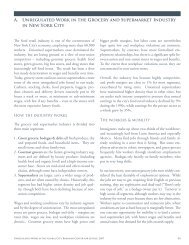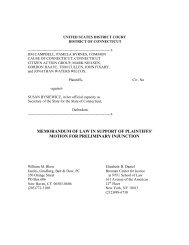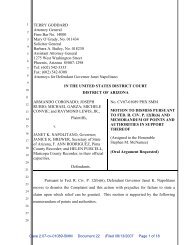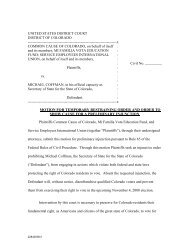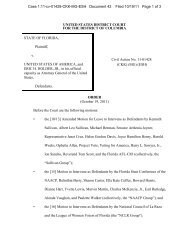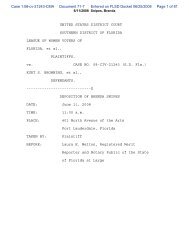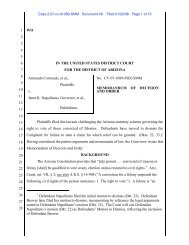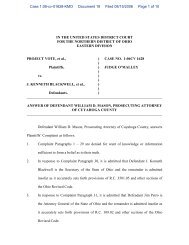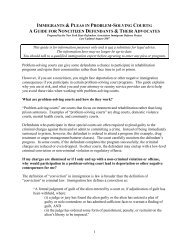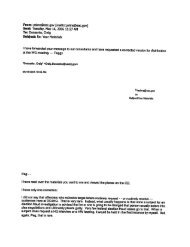You also want an ePaper? Increase the reach of your titles
YUMPU automatically turns print PDFs into web optimized ePapers that Google loves.
C. Analogous RegimesCivil penalty provisions are not uncommon in analogous regulatory regimes. Recently the trend hasbeen <strong>for</strong> Congress to increase such penalties. For example, in 2002, the TREAD Act increased thepenalties originally established in the Vehicle Safety Act of 1966 275 that NHTSA could seek to haveimposed on vehicle manufactures from $1,000 per violation to $5,000 per violation and from a penaltycap of $800,000 to a cap of $15,000,000. 276 Similarly, in 2008, CPSIA dramatically increased the civilpenalties already provided <strong>for</strong> in the Consumer Product Safety Act of 1972 (e.g., from $5,000 perviolation to $100,000 per violation) <strong>for</strong> knowing sale of products that do not con<strong>for</strong>m to an applicablerule or standard or failure to make necessary records available to the CPSC. 277 The penalty languagelegislation should resemble the language of both the Vehicle Safety Act and the Consumer ProductSafety Act.D. Key BenefitsIncreases Vendor AccountabilityAs Part III (Failures of the Current System: Case Studies) of this report illustrates, in the past, vendorshave not been held accountable <strong>for</strong> voting machine failures or their inability or refusal to correct them.Legislation with en<strong>for</strong>cement mechanisms would provide the EAC or another federal agency with thenecessary en<strong>for</strong>cement tools to hold vendors accountable <strong>for</strong> their acts or omissions after an investigationand hearing shows that this is justified.Incentivizes Vendors to Quickly Comply with MandatesCivil penalty provisions would act as a deterrent to wrongdoing by vendors; penalties would be highenough so as to not simply be regarded by vendors as a cost of doing business.Helps to Restore Public Confidence in Voting SystemsHAVA was meant to help restore public confidence in the integrity of the electoral process. During thesigning ceremony <strong>for</strong> HAVA, President Bush stated that “[t]he legislation I sign today will add to thenation’s confidence.” 278 He further added, “[t]hrough these re<strong>for</strong>ms, the federal government will helpstate and local officials to conduct elections that have the confidence of all Americans.” 279Giving an independent government agency the power to investigate problems and take action to remedyproblems should greatly increase public trust in our voting systems and elections.38 | Brennan Center <strong>for</strong> Justice



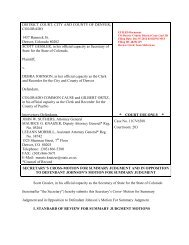
![Download the Letter [PDF] - Brennan Center for Justice](https://img.yumpu.com/50139248/1/190x245/download-the-letter-pdf-brennan-center-for-justice.jpg?quality=85)
